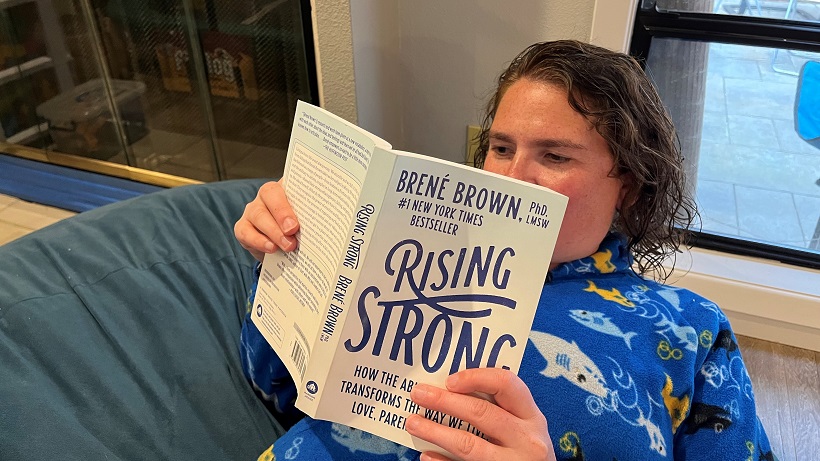I absolutely love Brené Brown. She speaks my language. I’ve listened to almost all of her books as well as her podcast. I’ve got her quotes about leadership and vulnerability hanging in my office. One of the best pieces of learning I’ve taken from her is about discomfort over resentment. In recounting all those times she said yes to an obligation that she wishes she’d said no to, Brené suggests that we often say yes to something to avoid discomfort, only to have it bring up resentment later, which ends up lasting a lot longer than the discomfort.

For example, if she’s asked to bake four dozen brownies for a bake sale, but doesn’t really have the time, Brené shares that if she agrees to the baking, she’ll then resent the entire situation, and her attitude will show it. When she delivers those resentment brownies, her words might be, “Here’s your brownies. I had to stay up all night to make them. They were a big hassle; I hope you’re happy.” That kind of resentment can really hurt relationships. On the other hand, had she been honest at the outset by saying, “I cannot make four dozen brownies by tomorrow, but I’d be happy to either buy some or contribute some funds for someone else to bake them,” she would’ve had to endure being uncomfortable for about three minutes, but then could have moved on.
In teaching this skill, Brené reminds us to ask ourselves in these situations if we prefer “discomfort now over resentment later.” This really resonated with me, probably because I never really knew how to express it before. As someone who has had struggles like this, applying this perspective has been immensely helpful in setting new priorities and boundaries. This concept helps to make sure that I lead with gratitude and joy instead of bitterness and hostility. Plus, there’s a link to our Torah portion (you knew I was getting there).
Our Torah portion this week, Parshat Ki Tavo, brings us closer to the final lessons God wants the Israelite nation to learn before they enter into the Promised Land. Our text reminds us again of the blessings and curses that come to us as we choose to follow or ignore the laws we’ve been given. Specifically, we learn of the requirement to make an offering of “first fruits” for the priests in the Beit HaMikdash, and the different ways in which we are supposed to thank God and give praise (before prayer was a daily activity). Finally, the text reminds us of how we’re supposed to take time to rebuke one another when we’ve misstepped and the ways in which we can do so with compassion and kindness.
Chapter 28, verse 47 teaches, “Because you would not serve the Lord your God in joy and gladness over the abundance of everything.” This statement comes in the midst of blessings and curses given for following the mitzvot to varying degrees, but it’s more about the attitude we adopt rather than the commandment itself. The real curse comes when we don’t serve in joy, when we’re resentful of the commandments our faith has prescribed. The Torah is reminding us that it’s ingratitude that keeps us from true connection to God or any sort of joy at all.
How true this is for our interactions with others too. Resentment, just as Brené Brown illustrates, keeps us from joyful connections with our fellow human beings. Like Parshat Ki Tavo teaches, mitzvot are the focus of Torah, but it’s the joy and gladness of Judaism that keep us full-hearted.



